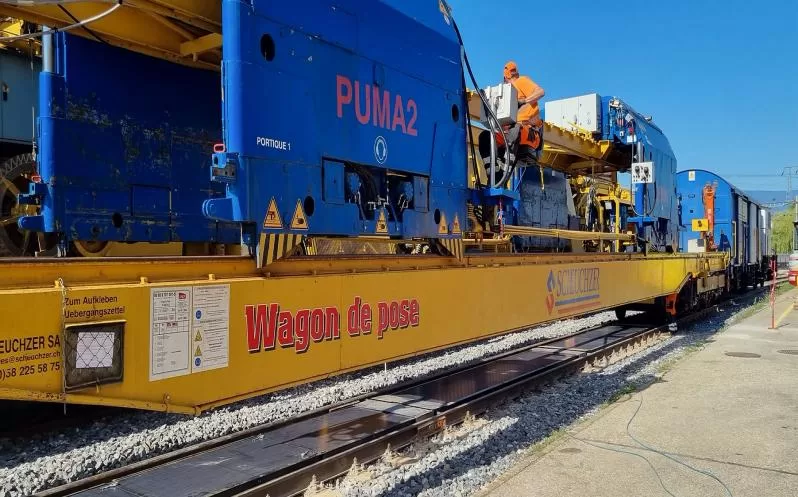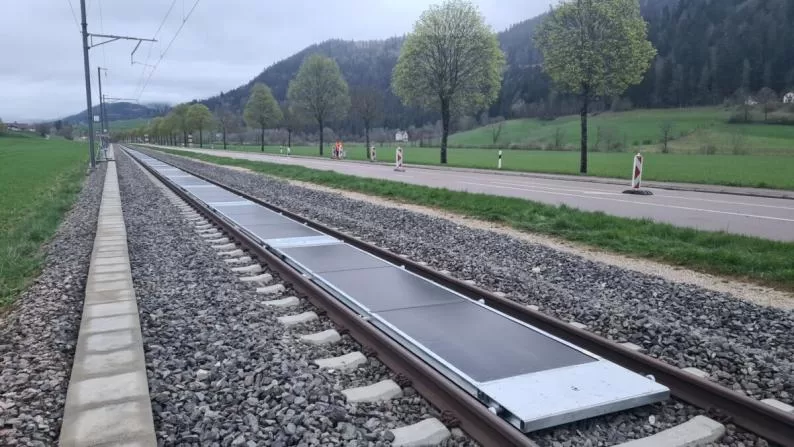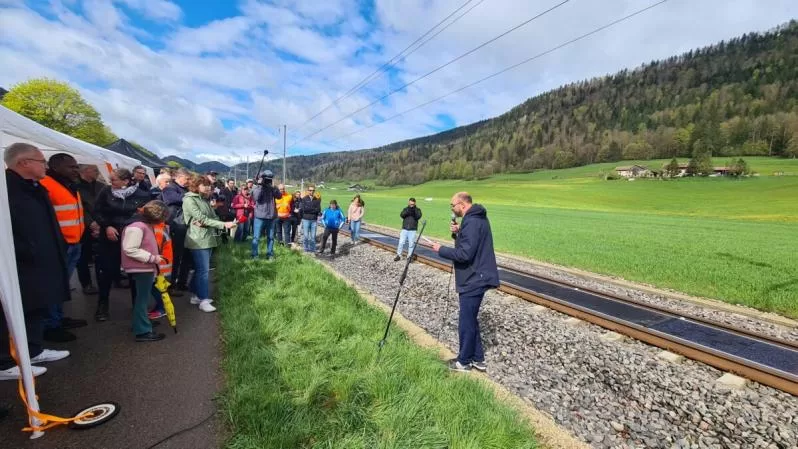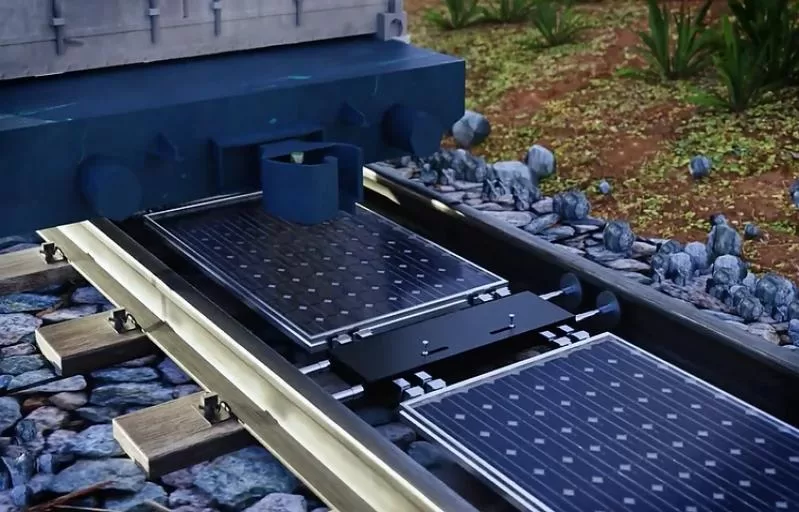Railroads have been seeing a revamp in their technologies over the past decade, with the latest being the use of hydrogen-powered trains in Germany. The revamp is gets a notch higher with Sun-Ways. The Swiss-based company has inaugurated its 2025 pilot project in the Neuchâtel mountains region in Switzerland. This comes after the Federal Office of Transport (FOT) of Switzerland approved its application back in 2024.
What is the Sun-Ways Solar Power Project?
The Sun-Ways Solar Power Project will see the laying down of photovoltaic panels (PV) with enhanced features in-between railway tracks. This will span thousands of kilometers of unused land in-between the tracks.
The project aims to tap into renewable energy with goal for infrastructural use and reduction of CO2 emissions.

The Sun-Ways Solar Panels
The PV panels to used will be unmatched to our “standard” panels in the following major ways:
- An anti-glare feature. The panels will be integrated with full-black panel tops. This allows for normal track visibility by the locomotive drivers.
- Cylindrical brushes. After their fitting at the end of trains, these brushes will swipe off dirt that might have accumulated over time as the train passes.
- They are removable. Unlike our standard home or office panels that we often think of as permanently fixed, those laid out in-between the railway tracks will be removable. This will allow for track maintenance to take place without much disruption to the railway transport and maintenance service.
Other features of the panels will be their varied dimensions depending to the track they are laid upon. According to the Sun-Ways, the standard dimensions for “normal” railway tracks (those with a gauge of 1443mm) is 1m by 1.7m.
The panels were been tested for the following; and subsequently passed.
- Durability. Where they have proven to withstand up to 240km/h of wind speeds.
- Technicality. The panels have shown to remain stable with train speeds of up to 150km/h.
A major challenge facing the use of these panels is the accumulation of snow during winter months. The cylindrical brushed can be used but other developmental considerations are in progress.
Other risks brought up after a feasibility study was done was mechanical stress from the trains passing overhead. Also noted was the issue of heavy soiling. These pose risk to the PV’s lifespan and energy output.

Panel Installation
The solar panels are installed in two ways: manually and through mechanization. The latter has been favored for this project. A Swiss-based manufacturer, Scheuchzer SA, also came up with a special train that can install up to 1km of panels in a few hours.
This is pivotal in two major ways:
- It will offset the installation costs that could have been incurred with manual panel installation and,
- reduced panel installation time as machines are more faster and more efficient for the process.
Utility of the Project
The solar power harnessed from the panels will mainly be used in three ways:
- By the railway company to power sections that rely on low-voltage power, e.g., stations, signals, and switches.
- By the local distribution electricity operator to supply renewable energy to nearby homes and infrastructure.
- By the traction power network to power the locomotives.
Sun-Ways 2025 Pilot Project
An array of 48 solar panels has been installed in between railway tracks, each with a capacity of 385W. Additionally, they have a total output of 18 kW, and will cumulatively contribute 16,000kWh per year to the local distribution electricity grid.
In line with the inauguration of the project, the first passenger trains will begin their journey over the panel-laid railway tracks on April 28.

Sun-Ways pilot project of laying the first-of-its-kind removable railway PV panels in the Neuchâtel mountains region got its approval by the FOT in OCtober 2024.
The panels were first laid in Line 221 of transN near Buttes station in the Swiss canton of Neuchâtel. This stretch covered a distance of 100 meters.
The Feasibility Study Project
This was done on 1,500 meters of private railway tract in the municipality of Aigle. It had a goal of harnessing up to 288 kW of solar power. It also included an international team of researchers who assessed the project’s technical and economical sense. The researchers found the project technically feasible. It has also been said to be a commercially viable renewable energy project.
Other Developments in the Project
According to the Swiss-based innovation company, other pilot projects are in actualization in France, Spain, South Korea, and Romania. Additionally, interested parties from some of the countries like France, Indonesia and South Korea were also present at the inauguration event.
Sun-Ways has also mentioned talks with potential partners in the United States, China, Thailand, and Australia being underway.

Leave a Reply